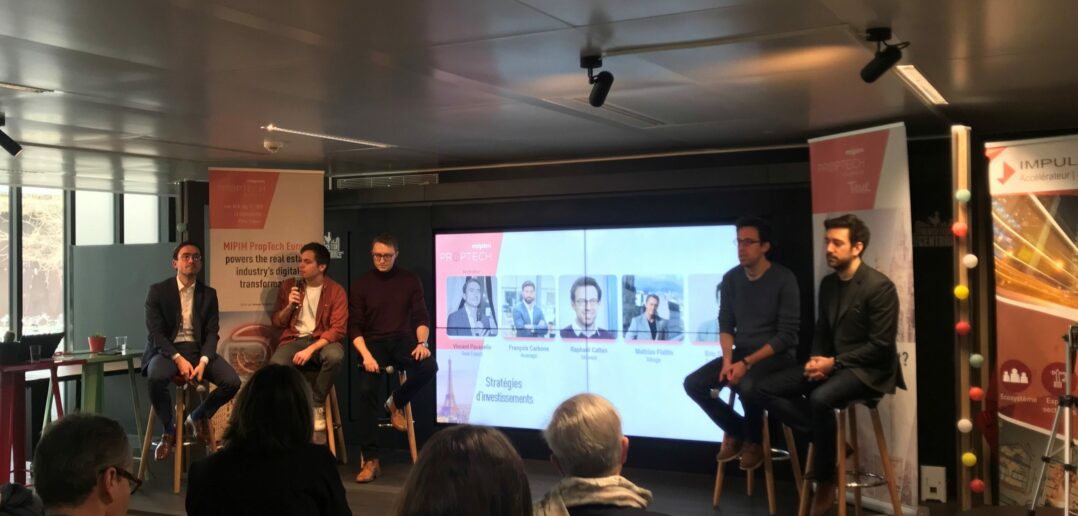The tour’s 2019/20 theme is ‘Innovation. So what?’, and this second gathering provided the opportunity to deepen preliminary thoughts from the first, London event, which took place in December.
The aim of the Propel by MIPIM Tour is to take the pulse of innovation across the real estate industry ahead of Propel by MIPIM, which takes place at LE CENTQUATRE in Paris on 30 June & 1 July 2020.
‘Innovation’ has become an on-trend word in the real estate industry. Real estate players talk about “innovative approaches” and “entrepreneurial programmes” as well as collaborations with start-ups and venture capitalists. Not only is innovation seen to be attractive, but also to bring efficiency.
More than 130 real estate professionals took part in the Paris event, inspired by four key speakers. The participants looked at the extent that ‘innovation’ was more than just a marketing buzz word and that it was of strategic importance.
Why does the industry need to innovate? And, if so, in response to what type of strategic issue? These were some of the questions circulating the packed room at Station F.
Participants were also asked to share their examples of best practices, and the challenges faced in developing a corporate culture of innovation.
The four guest speakers were: Leslie Pisano, head of innovation at Apsys; Sophie Rosso, general manager of operations at Quartus; Bertrand Eyraud, director of urban projects & innovation at Kaufman & Broad; and Raphaël Leonetti, head of the LAB at legal services firm Cheuvreux. The moderator was Arnaud Ménard, partner of strategic consultant & start-up incubator Impulse Partners.
Here are a few takeaways from the Paris event:
- Leslie Pisano showed how Apsys aligns innovation with strategic priorities in its role as a developer. Each of their innovation projects is presented in front of a specially set up, decision-making body. Apsys sees innovation as part of helping to define strategy as well as being a way to put pre-existing strategy into practice. It was a constant iterative “process” between strategy and innovation, Pisano said.
- At Quartus, innovation was core, said Sophie Rosso. The developer, which focuses on new real estate uses, was founded in 2014 on the back of a very strong entrepreneurial culture. Although they now had over 300 employees, Quartus still considered themselves as a start-up, with innovation as part of their DNA, said Rosso. Innovation plays a role in developing and proposing alternatives to the traditional offer, she added. Real estate professionals needed to see innovation as a constant process, she said.
- Raphaël Leonetti talked about how Cheuvreux had created an innovation ‘LAB’ to explore new ways of interpreting the law and to be in a position to deal with new issues. Legal firms must be innovative in order to adapt and improve their operational frameworks in response to three key changes: the trend for real estate as a service; the development of new real estate products; and the launch of urban environment competitions, such as C40’s global Reinventing Cities, and in the Paris region, Réinventer Paris (Reinvent Paris) and Inventons la Métropole du Grand Paris (Inventing the Greater Paris Metropolis).
- Bertrand Eyraud of developer Kaufman & Board pointed to the importance of the cultural dimension of innovation. To respond to this challenge, Kaufman & Broad have created an internal network of innovation experts and pilot programmes. A key objective of this network is to disseminate innovative solutions across the company.
All four speakers agreed that the perfect single model for the best organisational structure to foster innovation was an illusion. The approach – whether tracking experimental innovation or sharing best practice, resources and tools – must be designed and structured according to the individual organisation, and that this varied according to company culture and size.
To establish a culture of innovation, the most critical point was first to win over the people in your organisation, the speakers agreed. And to ask, are we innovating to meet strategic priorities?
In conclusion, to develop a consistent and efficient innovation policy was seen as challenging but necessary for real estate professionals. The development of such a policy needed a deep analysis of organisational culture, mission and strategy, and a determination to introduce a collaborative mindset, whether with start-ups, partners, clients, service providers and even competitors, so as to accelerate the move towards instilling a culture of innovation.
All four speakers agreed on the need for external support at the different steps of the journey. This might include mapping opportunities, setting up specific innovation processes, and the selection and implementation of which solutions are internal or which external.
What was clear from this second gathering was how close, despite some cultural differences, the issues were faced by real estate companies across Europe.
The next stop of the Propel by MIPIM Tour is Copenhagen. Join us there on April 2nd!
As part of the Propel by MIPIM Tour, Impulse Partners will produce an exclusive study on the adoption of proptech by real estate companies across Europe.



